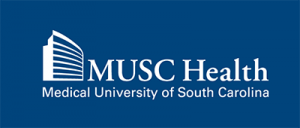MUSC files for certificate of need to construct freestanding emergency department on Sea Islands
October 9, 2019Earlier this week, the Medical University of South Carolina (MUSC) took additional steps to expand access to MUSC Health patient care services, filing for a certificate of need (CON) to construct a freestanding emergency department (ED) on Seabrook Island Road, Johns Island. The requisite CON filing was made through the South Carolina Department of Health and Environmental Control (DHEC). DHEC must issue a CON before certain types of health care acquisitions, expansions and creation of new facilities are allowed.
“This new facility will bring high-quality medical care to a community that currently does not have easy, timely access to these services,” said Patrick J. Cawley, M.D., CEO of MUSC Health and vice president for Health Affairs, University. “The Sea Islands communities continue to experience rapid residential growth. As a result, their residents need improved access to health care,” he noted.
“In addition, every year tourist season brings visitors from afar who don’t possess the local knowledge and awareness needed to navigate health care services in Charleston,” Cawley observed. “This high-quality, conveniently located option will directly address those issues.”
During its December 2018 meeting, the MUSC/MUHA (Medical University Hospital Authority) Board of Trustees voted to approve support for MUSC Health to pursue a CON for a freestanding ED to benefit the Sea Islands. The facility will include four exam rooms, two trauma rooms, fast-track triage, imaging and lab services, and a helipad. An adjacent medical office building will offer primary and specialty care.
If the CON is approved by DHEC, the land on which the new MUSC Health facility will be constructed is being donated by Kiawah Partners.
The goals of the project are to provide immediate access to emergency services, expand primary care and specialty care services, enhance specialty care with robust telehealth capabilities and provide access to imaging services. The total project cost for the freestanding ED is roughly $15.3 million.
With 187 miles of Atlantic Ocean coastline, South Carolina’s Sea Islands are a chain of tidal and barrier islands that boast beautiful beaches and a relaxed oceanside atmosphere.
About The Medical University of South Carolina
Founded in 1824 in Charleston, MUSC is the oldest medical school in the South, as well as the state’s only integrated, academic health sciences center with a unique charge to serve the state through education, research and patient care. Each year, MUSC educates and trains more than 3,000 students and 700 residents in six colleges: Dental Medicine, Graduate Studies, Health Professions, Medicine, Nursing and Pharmacy. The state’s leader in obtaining biomedical research funds, MUSC brought in more than $276.5 million in fiscal year 2018.
As the clinical health system of the Medical University of South Carolina, MUSC Health is dedicated to delivering the highest quality patient care available, while training generations of competent, compassionate health care providers to serve the people of South Carolina and beyond. Comprising some 1,600 beds, more than 100 outreach sites, the MUSC College of Medicine, the physicians’ practice plan, and nearly 275 telehealth locations, MUSC Health owns and operates eight hospitals situated in Charleston, Chester, Florence, Lancaster and Marion counties. In 2019, for the fifth consecutive year, U.S. News & World Report named MUSC Health the number one hospital in South Carolina. To learn more about clinical patient services, visit http://muschealth.org.
MUSC and its affiliates have collective annual budgets of $3 billion. The more than 17,000 MUSC team members include world-class faculty, physicians, specialty providers and scientists who deliver groundbreaking education, research, technology and patient care. For information on academic programs, visit musc.edu.













